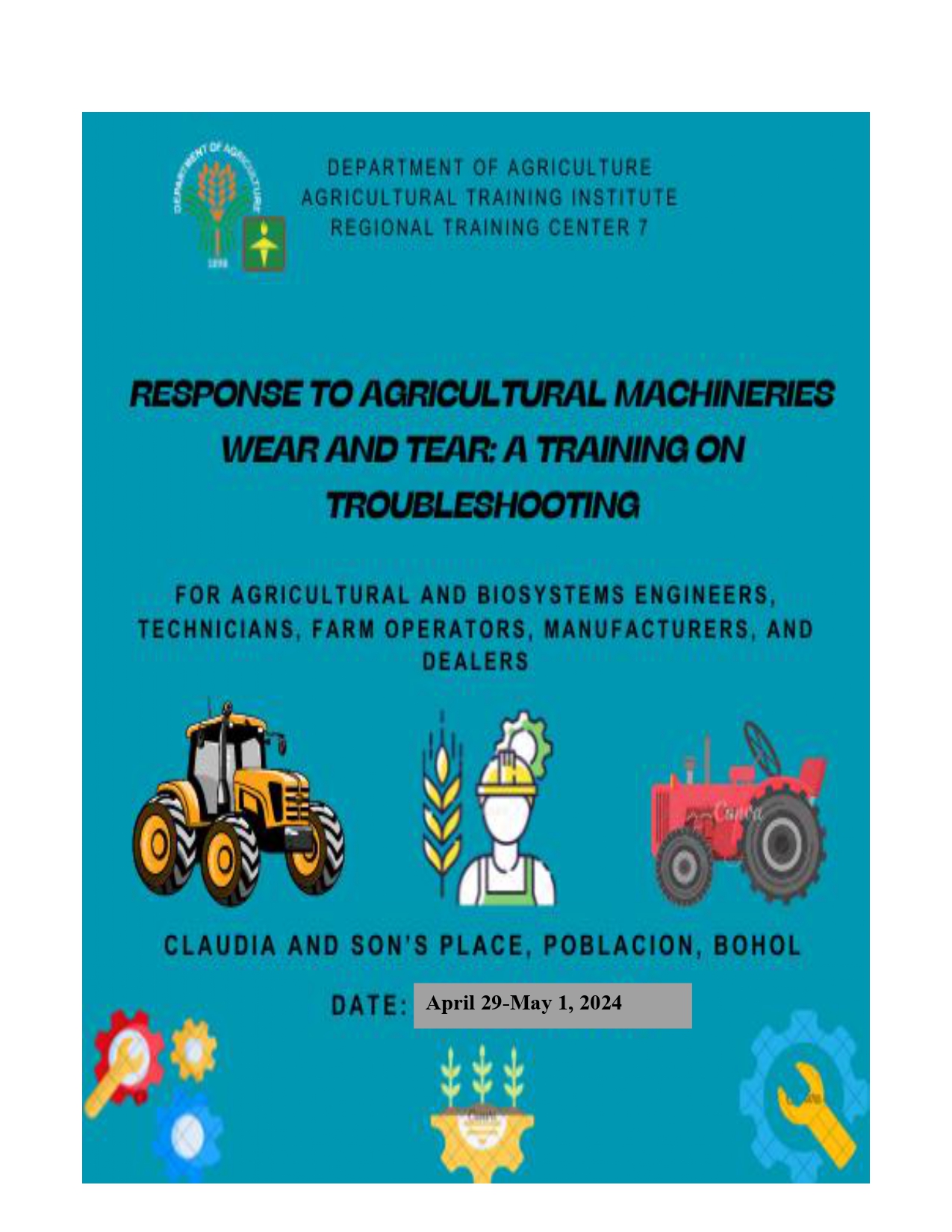Response to Agricultural Machineries Wear and Tear: A Training on Troubleshooting
Agricultural Training Institute-Regional Training Center VII
PROGRAM DESCRIPTION
Farm Mechanization can enhance the efficiency of both land and labor, inputs that are vital in sustaining food production and increasing farm income. However, despite the various innovations in mechanization technologies in the Philippines, the country lagged behind other Asian countries in terms of mechanical power at 1.68 hp/ha (Amongo, 2011). In 2009, PCARRD (formerly Philippine Council for Agriculture, Forestry and Natural Resources Research and Development or PCARRD) reported that the different farming activities of selected crops were predominantly operated at low mechanization level.
In the Philippines, the Department of Agriculture (DA) was mandated by the Agricultural and Fisheries Modernization Act (AFMA) of 1997 to give priority to the development and promotion of appropriate agricultural machinery and other agricultural mechanization technologies, to enhance agricultural mechanization on the countryside.
Agricultural and fisheries mechanization refers to the development, adoption, assembly, manufacture, and application of appropriate, location specific and cost-effective agriculture and fisheries machinery using human, animal, mechanical, electrical renewable and other nonconventional resources of energy for agricultural production and postharvest/postproduction operations consistent with agronomic conditions and for efficient and economic farm and fishery management towards modernization of agriculture and fisheries.
Lack of information, trainings and seminars and even educating the farmers or the stakeholders are the primary concerns of the department. Furthermore, lack of knowledge on troubleshooting and maintenance are also to be considered. Thus, this training course on machinery troubleshooting and maintenance is proposed.
OBJECTIVES
TERMINAL OBJECTIVE<br/><br/>It is broadly aimed by this training to enhance knowledge, attitude and skills of the participants on machinery operation and troubleshooting. <br/><br/>ENABLING OBJECTIVES<br/><br/>By the end of the three (3) days training, the participants will be able to:<br/><br/>1. Discuss the provisions of Farm Mechanization that can be applied to early development among farming household families.<br/>2. Explain the concept of troubleshooting and maintenance of the agricultural machineries as bases on the application of Farm Mechanization.<br/>3. Perform troubleshooting exercise of unserviceable machineries and equipment.<br/>4. Prepare re-entry plans on the agricultural machineries troubleshooting and maintenance.
ABOUT

GENERAL INFORMATION
OTHER INFORMATION
Response to Agricultural Machineries Wear and Tear: A Training on Troubleshooting
Agricultural and Biosystems Engineering
Training Program
OTHER INFORMATION
AGR-2023-043-288
Free Registration
20 target no. of participants
20 hours

